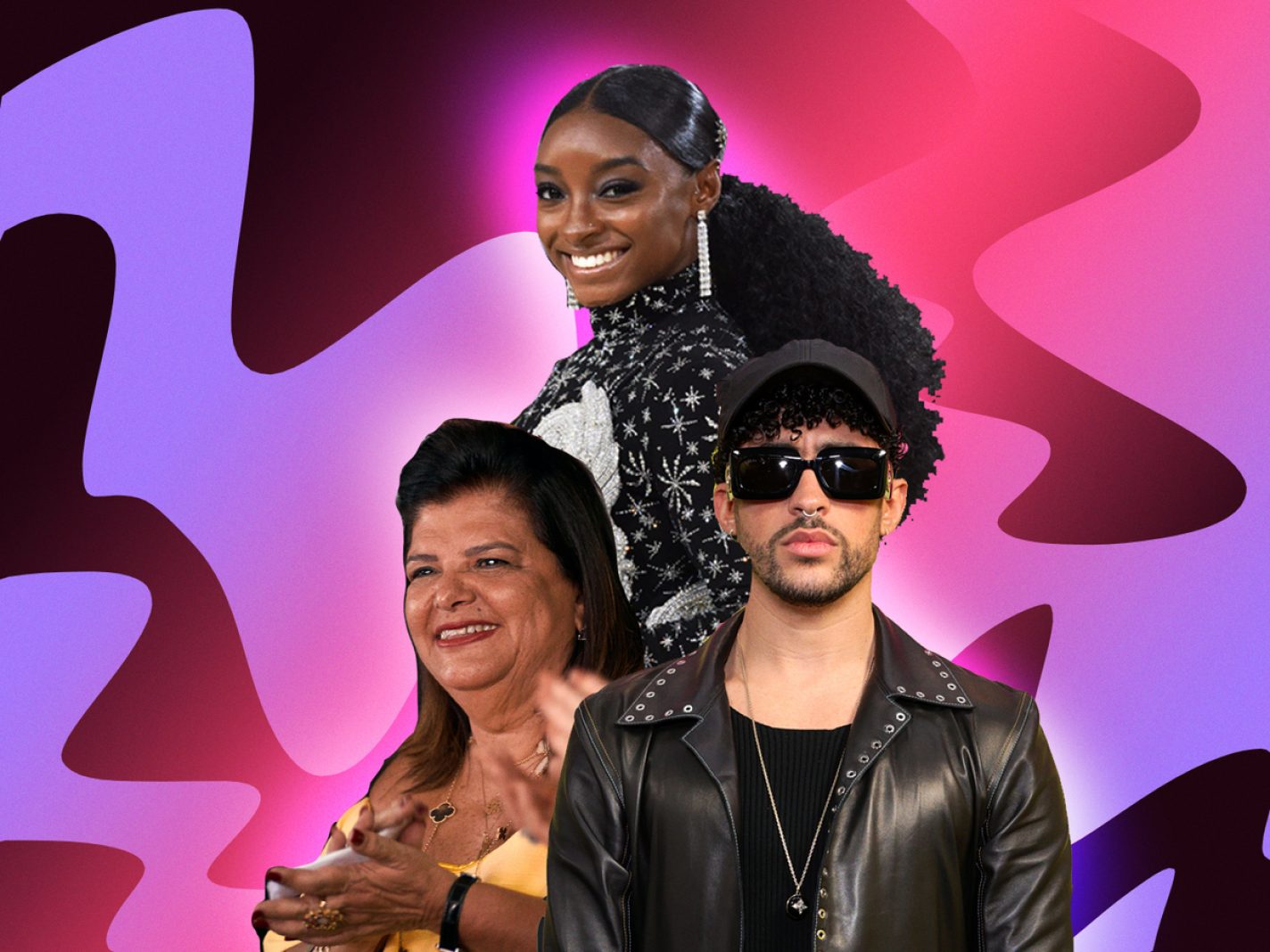Time Magazine is acknowledging something most of us already know, Latine people have mucho influence. So it’s great to hear that some of these notable people and icons are on Time Magazine’s 100 Most Influential List for 2021.
Each year the publication releases its picks in the following categories; icons, pioneers, titans, artists, leaders, and innovators. Then, they have a notable person in that category do a personal write-up for the honoree. This year Olympian Simone Biles is one of the seven covers and is acknowledged in the titan category, for the list now in its 18th year.
Bad Bunny is recognized, not surprisingly, in the artist category. He is written about by fellow reggaeton hitmaker J Balvin. “Watching him is like seeing a little brother make his dream come true. I met him when he was like a little monster, and now he is like Godzilla,” writes Balvin. “People wait for someone to die to say, “Oh, he was a legend.” But I’m telling Benito now, “You are one of the greatest artists in Latin music history.”
Artist Luis Manuel Otero Alcántara is also honored on the list under the category of an icon. The artist has been a longtime fighter in Cuba’s San Isidro movement. He is among the many who demand greater freedoms for the Cuban people. Though he is now imprisoned, his influence reaches far and wide.
“Art needs courage, which he has repeatedly demonstrated. Its aesthetics need a solid philosophical background and a strong sense of ethics—this, too, he has shown. It is through such struggles for free expression that art transcends the condition of banality and mediocracy,” writes fellow artist and activist Ai Weiwei.
Indyra Mendoza and Claudia Spellmant are honored together in the pioneers’ category. Mendoza and Spellmant have been instrumental in getting the county of Honduras to be held responsible for the death of transgender woman Vicky Hernández. She was murdered in 2009 during the Honduran coup d’état. And according to Time Magazine, her murder, “came to symbolize the pervasive structural violence that trans women continue to face to this day.”
Today their advocacy has helped issue new protections for LGBTQ+people across Latin America. Kerry Kennedy, president of the Robert F. Kennedy Human Rights writes, “Indyra and Claudia understand well the fight isn’t over, and have pledged to keep pushing for the rights of their communities. The world must follow their lead.”
Also in the pioneer category is Olimpia Coral Melo Cruz. She became a women’s-rights activist after surviving what is referred revenge porn. She brought much attention to the subject and in April 2021, Mexico passed Olimpia’s Law; a federal law prohibiting the sharing of such content without the subject’s permission.
“It can be difficult to be a survivor, speaking up about something so personal, but Melo Cruz’s impact will not only be meaningful right now, it will be remembered in history—and history is on her side,” says Amanda Nguyen CEO and founder of Rise, a civil rights nonprofit that advocates for survivors of sexual violence.
And finally, Luiza Trajano, founder of Magazine Luiza, is being acknowledged in the titan category. She took action in Brazil during covid. Hundreds of thousands were dying while false information was spreading throughout the country.
Luiz Inácio Lula Da Silva, President of Brazil from 2003 to 2010 writes, “At a time when the Brazilian federal government was downplaying the risk the pandemic posed, Luiza courageously spoke about the urgency of vaccination. She has also been a vocal advocate for equality, creating Mulheres do Brasil, a nonpartisan group of more than 95,000 women working to build a better society, and support victims of domestic violence.”
